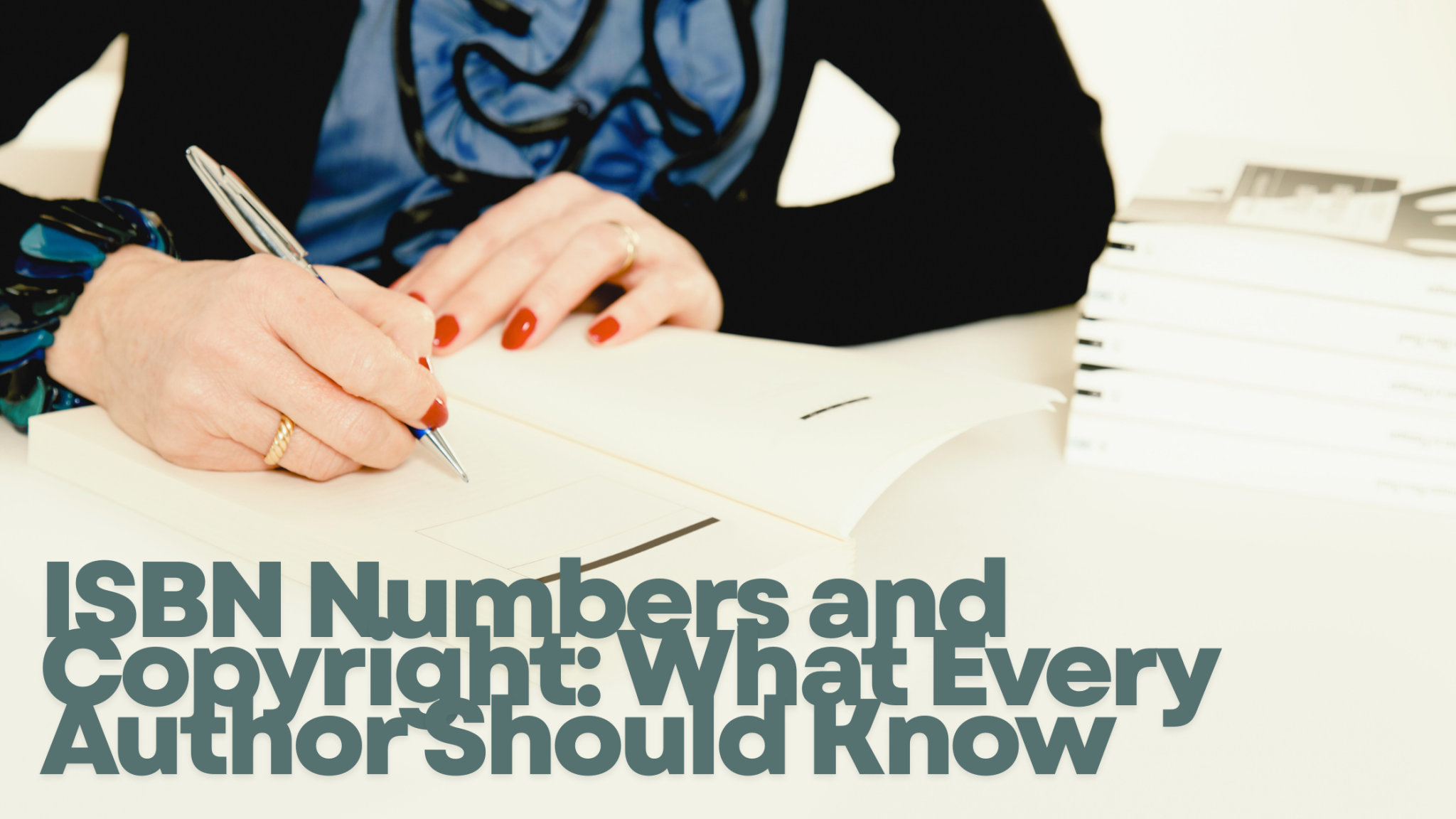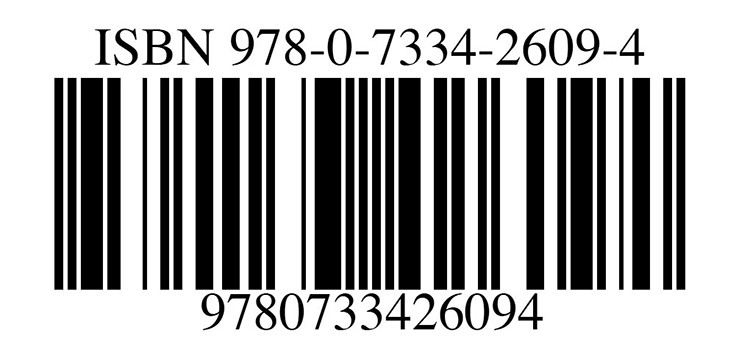
You’re at the one-yard line. Your manuscript is finished, edited, and formatted. The cover design is perfect. You’re finally ready to upload your book and hit that glorious “publish” button.
And then you hit a brick wall of technical jargon. A checkbox asks, “Do you have your own ISBN?” A pop-up offers you a “free ISBN.” A different section mentions “copyright information.”
Your momentum stalls. In a moment of panic, you dash over to Google and type in the one query that thousands of confused authors have typed before you: “Isbn Copyright.”
Let’s clear this up immediately: There is no such thing as an “Isbn Copyright.” It’s a term born from mashing two completely separate, and equally vital, concepts into one. It’s like confusing your home’s street address with the deed that proves you own the house. One tells people where to find your product. The other proves that the product is yours. Understanding the difference isn’t just ‘good to know’, it’s fundamental to your career as an author. Getting it wrong can mean losing control of your distribution, looking unprofessional to bookstores, or, in a worst-case scenario, being unable to defend your work if someone steals it.
So, before you click that next button, let’s untangle this. What is an ISBN Number, what is Copyright, and what does every author really need to know to protect their book and sell it effectively?

An ISBN Number stands for International Standard Book Number. It’s a 13-digit code (it used to be 10 digits before 2007) that acts as a unique product identifier for your book. That’s it. It’s not a magic shield of legal protection; it’s an inventory and tracking number for the commercial marketplace. Every bookseller (Amazon, Barnes & Noble), distributor (IngramSpark), library, and wholesaler uses this number to track their stock, manage orders, and ensure they’re selling the correct book.
You ABSOLUTELY NEED an ISBN if you plan to:
You DO NOT need an ISBN if:
Platforms like Amazon’s Kindle Direct Publishing (KDP) or other print-on-demand services will offer you a “free” ISBN. This sounds great, but there’s a huge catch. When you use a free ISBN from a platform, they are listed as the publisher of record in the global database. For example, if you take KDP’s free ISBN, the publisher will be listed as “Independently published.”
This might not seem like a big deal, but it means:
The best practice for serious authors is to buy your own ISBNs. In the United States, ISBNs are sold exclusively by ISBN Services. You can buy a single ISBN, but they are much cheaper in bulk (a 10-pack is often the best value). When you buy your own, you get to name your own publishing imprint.
Yes! This is another key rule. You need a separate ISBN for every single format of your book.
Why? Because they are different products. A bookstore orders a “paperback” (one ISBN) or a “hardcover” (another ISBN). They have different prices, weights, and inventory slots.
Note: Amazon Kindle is a special case. It doesn’t use the industry-standard EPUB ISBN. It assigns its own unique identifier called an ASIN (Amazon Standard Identification Number) to all Kindle e-books. However, if you want to sell your e-book on Apple Books, Kobo, or elsewhere, you will need an ISBN for your EPUB file.
Now, let’s talk about copyright. This has absolutely nothing to do with sales, inventory, or product codes. Copyright is a form of intellectual property law. It grants you, the author, exclusive legal rights to your “original work of authorship.” In simple terms, it’s the law saying, “You wrote this. It’s yours. Only you get to decide what happens to it.” These exclusive rights include the right to:
Here is the single most important thing to know: Copyright protection is automatic upon creation.
The very second you type the words onto your computer screen (or write them in a notebook), you own the copyright. You don’t have to file any forms, pay any fees, or even put the little © symbol on it (though it’s a good idea). So, if it’s automatic, why does everyone talk about “registering” your copyright?
This is where things get serious.
Registering your copyright, which in the U.S. is done through the U.S. Copyright Office (copyright.gov), is what gives your ownership legal teeth. If you do not register your copyright, you cannot:
Registering your work is relatively inexpensive (check the official site for current fees) and is the single best insurance policy you can buy for your book. A quick myth-bust: The “poor man’s copyright” (mailing a copy of your manuscript to yourself and keeping it sealed) is completely useless and holds no legal weight in court. Don’t waste the postage.
So, let’s circle back to that confusing search term: “Isbn Copyright.” As you can see now, it’s a term born from confusing two totally separate systems:
Getting an ISBN does NOT register your copyright. Registering your copyright does NOT get you an ISBN.
You can have copyright on a manuscript that has no ISBN (e.g., your Word document). You can have an ISBN on a book that has no new copyright (e.g., a publisher printing a new edition of Moby Dick, which is in the public domain. The book is a new product needing a new ISBN, but the text is not under copyright). As a serious author, you need both.
You’ve done the hard part. You’ve created a world from scratch. Don’t stumble at the end by neglecting the business side of being an author. Treat your book like the valuable asset it is.
Don’t let the administrative tasks intimidate you. By understanding that an ISBN is for identification and copyright is for protection, you’ve already mastered the most confusing part of the publishing journey.
A: No, absolutely not. You always own the copyright to your original work (remember, it’s automatic). Taking a free ISBN from KDP (or any platform) only means they are listed as the “publisher of record” for that specific edition of the book. This simply links that ISBN to their platform and limits your distribution. It never gives them any ownership over your intellectual property.
A: Generally, no. A new cover on its own is just a marketing change, not a new edition. You would only need a new ISBN if you make substantial changes to the text (e.g., adding new chapters, a major rewrite) or if you release it in a new format (e.g., changing from paperback to hardcover).
A: Not quite. The ISBN is the 13-digit number. The barcode is the scannable graphic that contains the ISBN. When you buy an ISBN from Bowker, they often give you the option to buy a barcode file as well. Print-on-demand services like KDP and IngramSpark typically generate the barcode for you (based on the ISBN you provide) and automatically place it on your back cover.
A: Prices vary by country. In the U.S., Bowker sells them. A single ISBN is quite expensive (currently $125), but a block of 10 is much more economical (currently $295, making them $29.50 each). A block of 100 is even cheaper per unit. If you plan to release a paperback, hardcover, and e-book, a 10-pack is almost always your best bet.
A: In the U.S., the fee to register a work online with the U.S. Copyright Office is very reasonable. As of late 2024, the fee for a single author registering one work is typically $45-$65. This is a tiny price for the immense legal protection it provides. Always check copyright.gov for the most current fees.
A: Yes! You would buy one ISBN and assign it to the EPUB format of your book. You would then provide that same EPUB ISBN to Kobo, Apple Books, Barnes & Noble (Nook), and any other retailer except Amazon. Amazon will ignore the ISBN and assign its own ASIN for its Kindle store.
